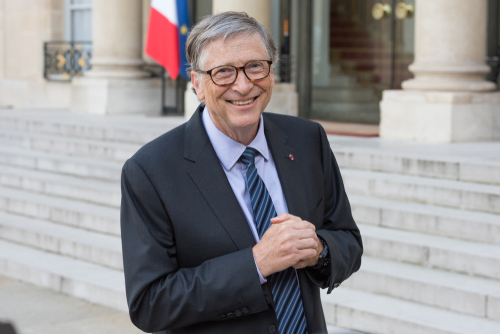
In the ever-evolving landscape of global health, a new development has emerged that is stirring debate across conservative circles. Philanthropist and tech mogul Bill Gates has once again positioned himself at the forefront of vaccine technology, this time with an innovation that could change the way we approach immunizations: a ‘wafer’ vaccine.
The concept is simple yet revolutionary. Instead of traditional injections, these wafers, laced with mRNA technology, are designed to be placed under the tongue, dissolving to deliver the vaccine. This needle-free approach is not only a leap in convenience but also in accessibility, as it eliminates the need for cold storage—a significant barrier in vaccine distribution, especially in less developed regions.
Bill Gates paid off his ex-wife for a reason during their divorce. The New York Times and The Wall Street Journal both reported that Melinda was concerned about Bill's social connection with convicted sex offender Jeffrey Epstein. pic.twitter.com/pIyVlJ4ZeO
— 🔥Desiree🔥 (@DesireeAmerica4) December 23, 2023
Gates’ investment in this technology, through a $1.2 million grant to a startup, is just the initial push for a project that promises more funding down the line. The Coalition for Epidemic Preparedness Innovations (CEPI), with substantial backing from Gates, is collaborating with Jurata Thin Film Inc. to bring this vision to life. Their goal is clear: to stabilize mRNA vaccines in a format that’s both durable and easy to distribute.
However, this initiative has not been met without skepticism. Critics within conservative communities question the reliability of the mRNA platform, citing concerns over safety and the rapid pace at which this technology is being developed. There is a fear that the rush to innovate may overlook potential long-term effects, a sentiment that has been echoed in the wake of the Covid pandemic.
Arrest Bill Gates. https://t.co/pBKatdDGGX
— Liz Churchill (@liz_churchill10) December 23, 2023
Adding fuel to the fire, some view Gates’ involvement with suspicion, interpreting his actions as a relentless pursuit of profit under the guise of public health. They argue that his influence in the vaccine industry is becoming increasingly pervasive, shaping global health policies in ways that may prioritize corporate interests over individual freedoms.
Moreover, the symbolic nature of the wafer vaccine has not gone unnoticed. For many, it uncomfortably echoes religious practices, raising ethical questions about the intersection of technology and spirituality. This comparison has amplified distrust among those who perceive it as a mockery of sacred traditions, further entrenching the divide between secular advancements and religious values.
Despite these concerns, supporters of the technology emphasize its potential to revolutionize healthcare. The ability of the wafer vaccine to remain stable for up to three years without refrigeration is seen as a game-changer for reaching impoverished populations who have historically been left behind in vaccination efforts.
The debate rages on, with each side holding firm to their convictions. Proponents hail the innovation as a step towards a more equitable healthcare system, while detractors warn of the risks of unchecked technological advancement and the erosion of personal liberties.
As the conversation continues, one thing is certain: the development of the wafer vaccine will be closely watched by both advocates and critics alike. Its success or failure could have far-reaching implications for the future of global health and the role of private philanthropy in shaping it.












